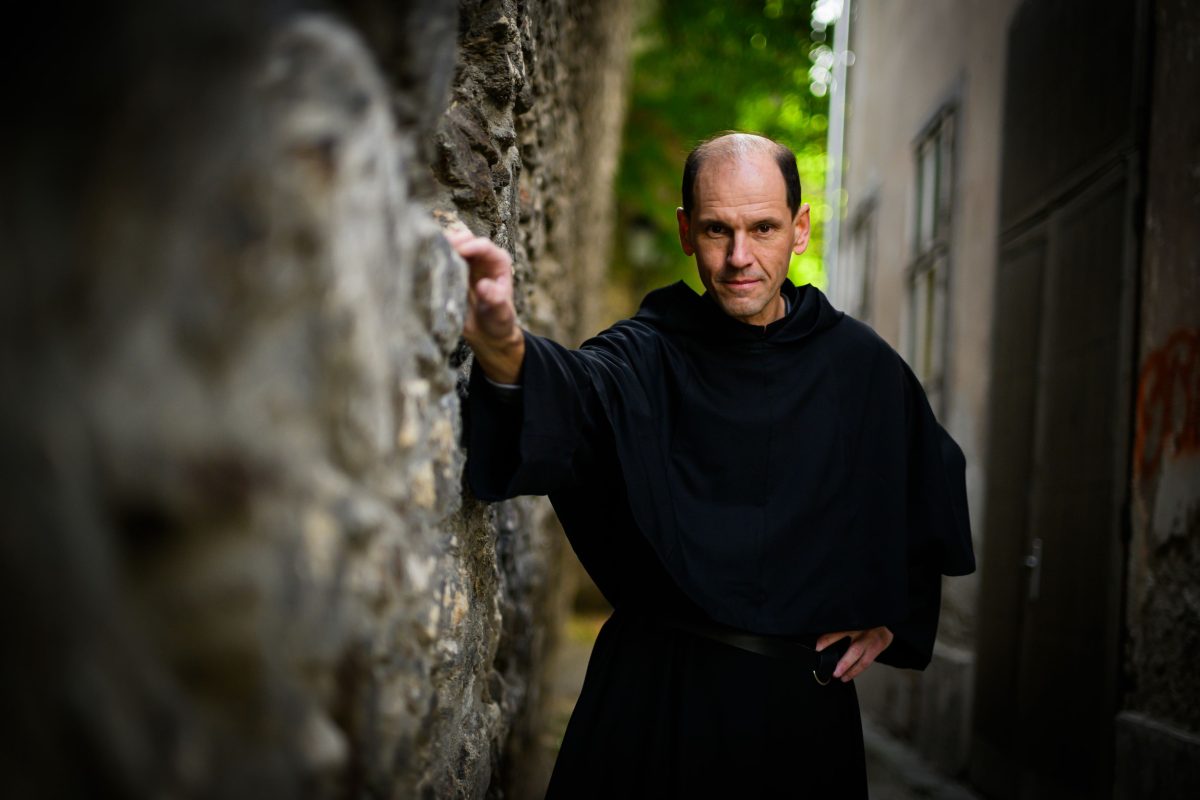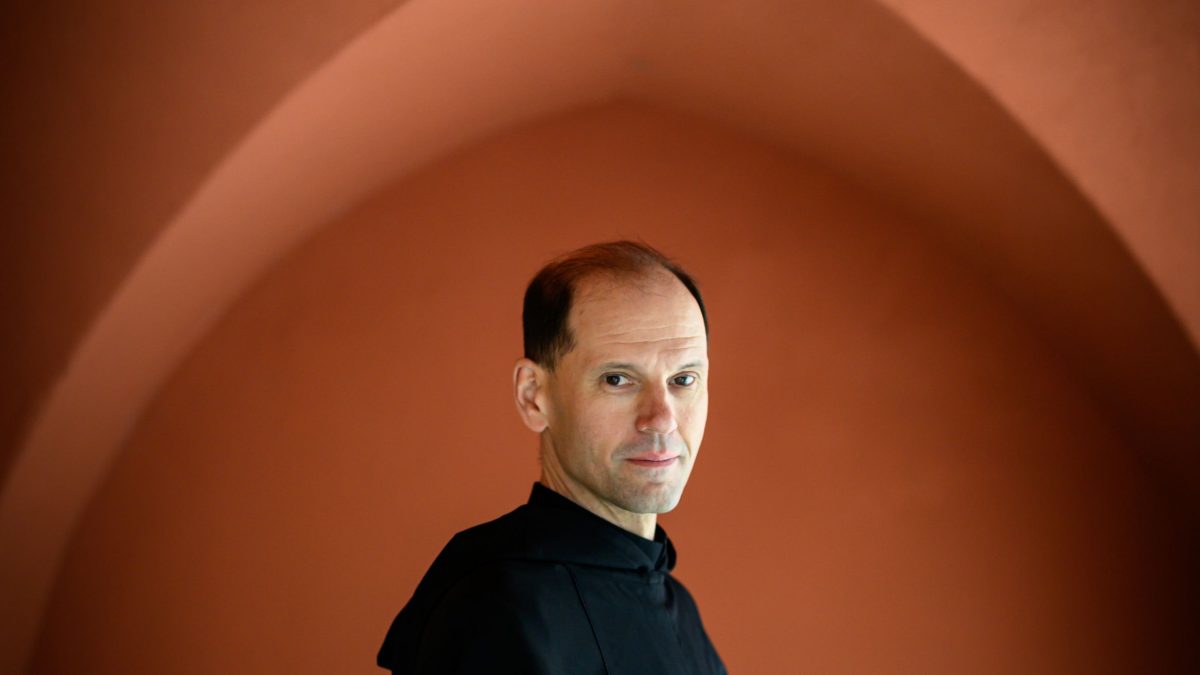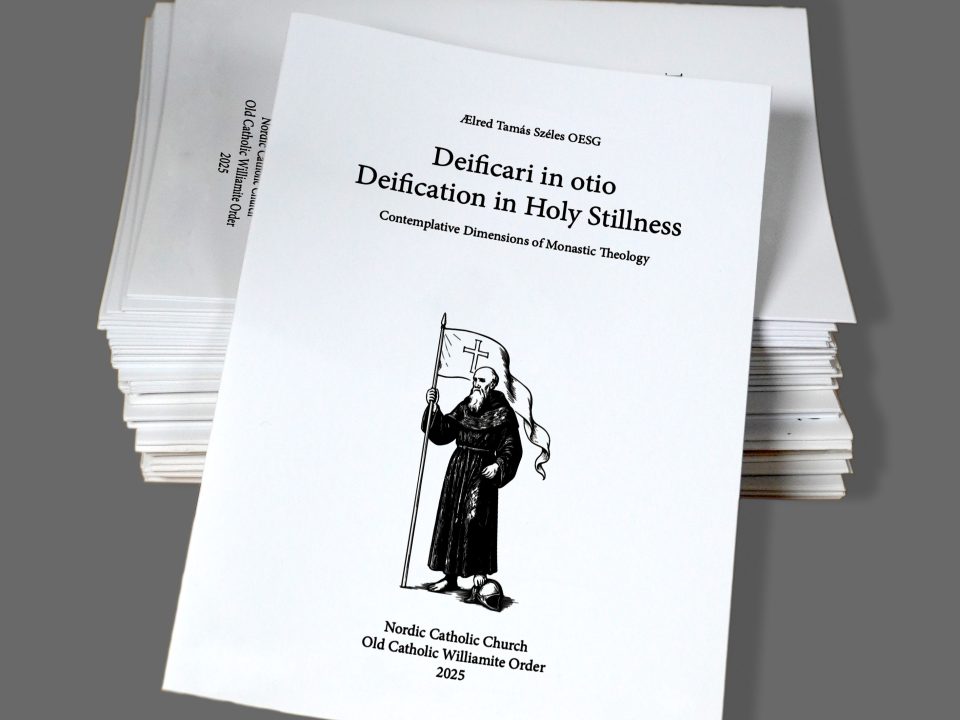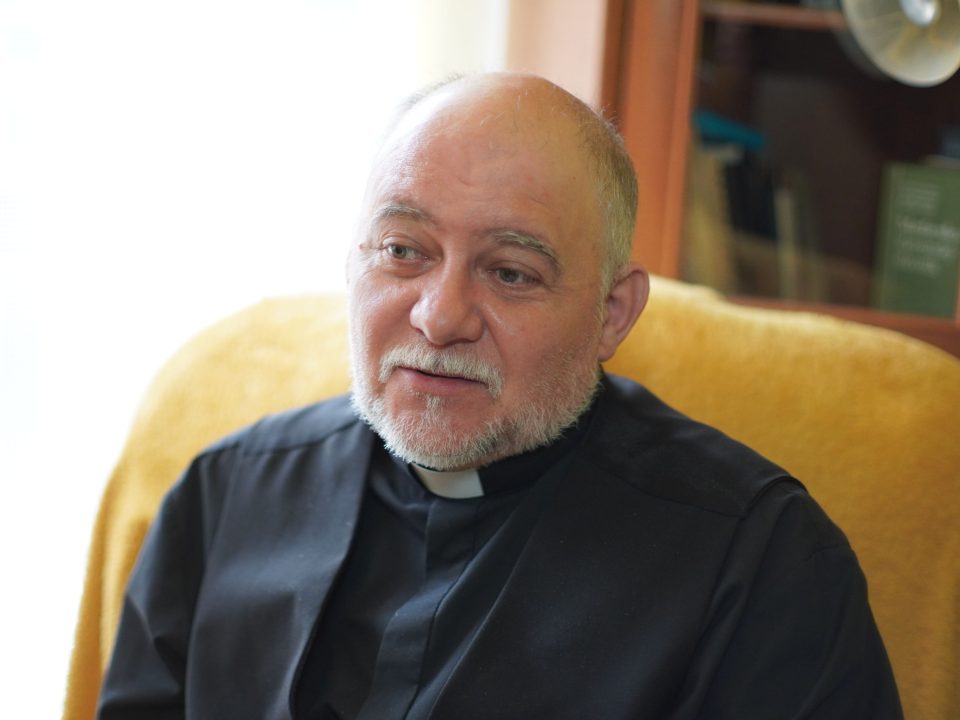
Constitution
October 5, 2025On October 1, 2025, the Old Catholic Williamite Order and its first convent in Budapest were founded. The establishment of the Order is, in several aspects, a surprising development in the life of Hungarian Old Catholics: first, because in our tradition clerical celibacy is not obligatory, and thus, as an Old Catholic priest, one could easily live a full family life; second, because the Old Catholic presence in Hungary is rather modest; and third, because the Williamite Order once existed in history, but eventually died out. Why, then, was the Order founded, and with what motivation has the Williamite tradition been revived? My interlocutor is Fr. Aelred Széles, OESG, Prior of the Holy Trinity Williamite Convent in Budapest.
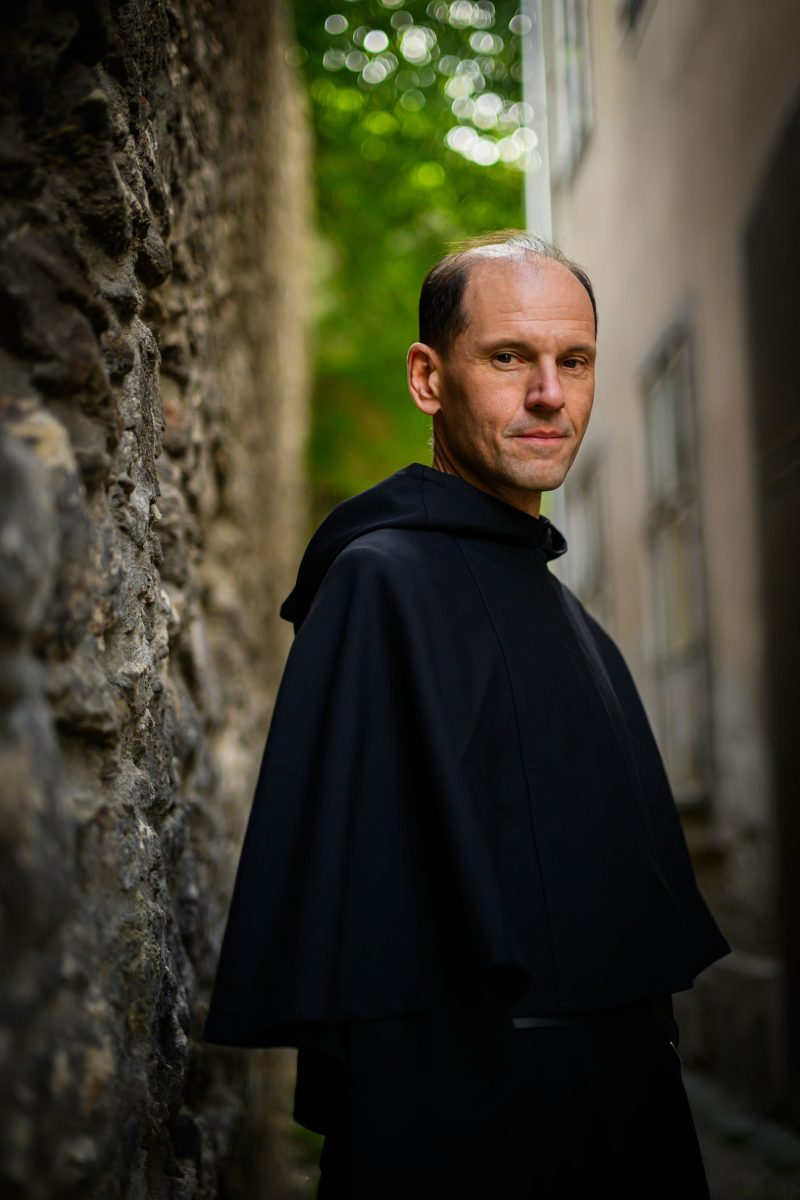
Fr. Aelred: It may sound somewhat banal, but the foundation of the Order has no other reason than the inner thirst for God, as the prophet Amos wrote (Amos 8:11). Nothing more is required. Formerly I belonged to the Cistercian Order within our Church, yet I did not find a true home there. As one bound by perpetual vows, I still wished to live the religious way of life, and to this, my brother priest from Rozsnyó, Fr. Zoltán Drenkó, gladly joined me. The Old Catholic revival of the Williamite Order became a true inspiration; for when Christianity struggles with inner difficulties, it is precisely radical and devoted faith that may serve as the best remedy.
A. M.: Does this mean that you are striving to revive medieval spirituality in today’s context?
Fr. Aelred: By no means; the Middle Ages are past, and we do not long to return there. On the contrary, we stand firmly with both feet in the present, and, as Jesus taught, we strive to be the salt of the earth — that is, to give spiritual flavor to a world marked by utilitarianism and a lack of love. We desire to show that the Kingdom of God is here and that all His graces are accessible.
A. M.: Saint William of Maleval was perhaps the greatest ascetic among all the saints. Is it not strange, in 2025, to follow in his footsteps? How does asceticism manifest itself in the life of a contemporary Wilhelmite?
Fr. Aelred: Allow me to clarify; for some reason, in English our patron saint is commonly referred to as Saint William of Maleval, but in fact the original name is Malevalla (Sanctus Guilelmus Malavallensis), meaning “bad valley.” Therefore, as Old Catholics we use this original Latin form. Asceticism is not self-torment, but rather—according to the original meaning of the word—exercise: the voluntary renunciation of certain joys of life helps one to focus on God and sets the soul free.
A. M.: And in your own case, what does this mean? What ascetic practices do you follow as a hermit?
Fr. Aelred: We follow the Rule of Saint Augustine, which is lenient regarding fasting and asceticism; therefore there is no uniform obligation—each monk practices asceticism according to his constitution and personal abilities. In my own case, besides the obligatory celibacy and simplicity of the Order, it means total abstinence from meat and alcohol; I only receive the wine of the Holy Mass in the Eucharist. And yet, those who know me well also know how much I once loved beer… Furthermore—following the example of Saint William—I only eat warm food three times a week. Yet none of this is deprivation, but rather a personal gift, an offering, which is abundantly repaid in the spiritual life. Once more I wish to emphasize: by renunciation we become free from our attachments. To give up beer, meat, or anything else means being freed from a bond; it dissolves our clinging.
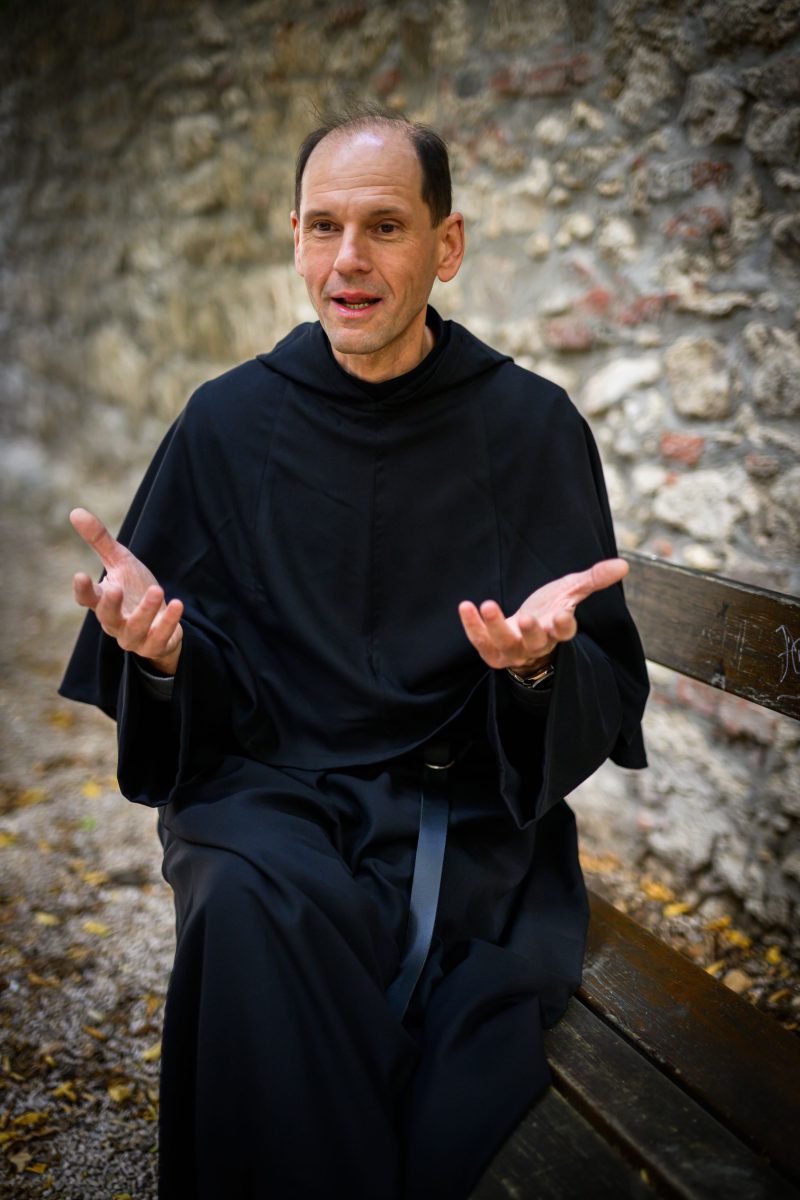
A. M.: What can such a small hermit order contribute to the Nordic Catholic Church? To ask with a touch of provocation: what was the purpose of founding it at all?
Fr. Aelred: It is not a provocation, but a legitimate question. By our mere existence we already bear witness to God and to His love. Today’s world lives enslaved by output; anything that does not produce a product or profit is considered meaningless. Thus monks are generally regarded as useless. Our “product” is nothing other than to live quietly in God’s presence, and to represent this as a testimony. Ideally, the Order can serve as the spiritual engine of the Church; even better, it can help the members of the Church toward a deeper communion with God. The task of a monk or a hermit is to pass on the fruits of his personal relationship with God as spiritual nourishment to the faithful. The spiritual quality of the Church is best measured by the spiritual quality and way of life of its monks. As the monks are, so is the Church.
A. M.: The Order’s website (williamiteorder.org) states that the Order is built upon three pillars: contemplation, fraternal community, and service. What does Williamite service entail?
Fr. Aelred: What we receive in our life of prayer and contemplation, we offer on an international level to the members of the Union of Scranton in the form of retreats, spiritual resources and guidance, organized gatherings, and online content. We organize retreats, produce videos, publish studies—in many different ways we share and hand on what we have received from God.
A. M.: Let me ask a personal question. In secular life you are an actor: you actively perform on stage, appear on television, do dubbing, and teach acting at the University of Kaposvár. How does all this fit with the hermit’s way of life?
Fr. Aelred: Perhaps surprisingly, quite harmoniously. As an Old Catholic priest and hermit, I must support myself and my ministry. Beyond the financial self-support, however, the spiritual benefit is even greater. Most people repress their instinctual desires, especially religious Christians, because they do not know what to do with them. On stage or in the studio, I can live out these impulses in a professional way through my roles. At present, for example, I am playing an East German Stasi agent in one play, and in another, Julius Jacob von Haynau; in them I can live out aggression, malice, betrayal. Next I will play Uncle Vanya, in whom I can embody the mental projections of a wasted life, hopeless platonic love, self-destructive helplessness. For this reason I believe there is little repression in me; the theater frees me from many inner burdens. I consider myself especially blessed to be both an actor and a priest-hermit. Saint Augustine wisely wrote that true self-knowledge comes to those who “burn away their supposed wounds in solitary withdrawal, or heal them through the liberal arts” (Ordo I,3).
A. M.: Can anyone become a member of the Old Catholic Wilhelmite Order?
Fr. Aelred: No. Only adult members of the Union of Scranton’s constituent Churches may be admitted into the Order, and only after thorough discernment of their vocation and a longer period of personal acquaintance. We are not an ecumenical community, because if we do not believe the same faith, then we do not draw from the same sacrament; and then we do not possess the “partnership in the faith” (Phlm 1:6) that the Apostle requires. Only upon the one faith (Jude 1:20) can we build a spiritual temple and community in Christ. We must live in the same purpose and the same mind (1 Cor 1:10). This, too, is a distinctive mark of Old Catholicism, for the word katholikos means “united, universal, one.” By this we mean not only the faith of the first millennium, but also the unity of faith and thought, of spirituality and life.
